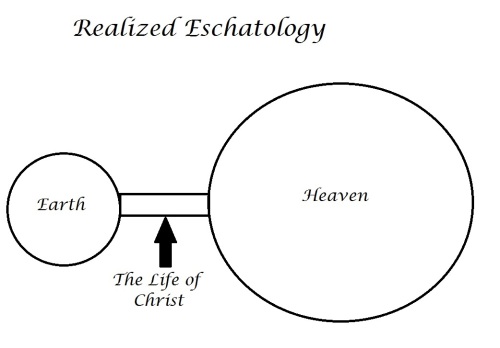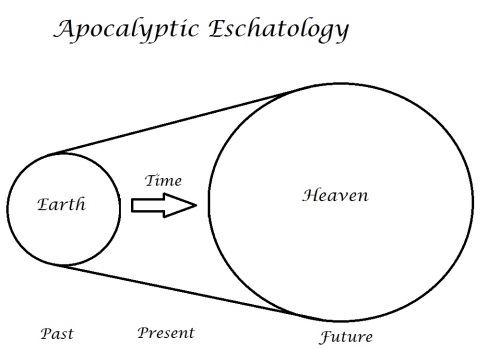Hello! I hope the weeks have been treating you well. For me, they’ve been lots and lots and lots of work as my wife and I prepare for our trip to Europe (actually, she does most of the preparing while I do most of the working, as it’s apparently still the busy season). Before I continue last week’s thought experiment on confession, I want to say that this is the last time you’ll hear from me for a month or more. I won’t be able to blog while abroad, and when I get back, I’ll be putting a lot of thought into why it is I write this blog, and considering whether or not it’s worth continuing. I know it’s a small thing to consider, but please pray for me on this decision.
Anyway, last week I explored the concept of deathbed confessions, and whether or not they constitute real, true atonement. Once a person is beyond all earthly consequence for their past sins, are they confessing because they’re wracked with guilt, or because they’re ashamed of what they’ve done and truly seeking God’s forgiveness? Or are they simply trying to avoid the eternal consequences of their sin the way they successfully avoided the earthly ones? I don’t know the answer, and it may very well be sometimes the former and sometimes the latter. But where that leads into salvation or damnation, I won’t dare to venture.
What I arrived at last week was, I believe, a very critical juncture: fear. Too often, it is out of fear of eternal consequence that we repent of our sins, rather than out of a sense of legitimate guilt. So we repent, or we confess Christ because of our overwhelming fear of Hell. But if fear is the overriding factor – if that is, in fact, the driving force behind repentance – then it leaves me with certain doubts as to whether or not that is true repentance. Should repentance not be borne instead of a desire to grow closer to God, to be made right with him? By that paradigm, the active agent behind repentance is not fear, but love. We confess our sins to God because of our love of him. In a similar manner, I confess my sins to my wife out of love, out of a desire to not let those sins become a barrier between us.
Oddly enough, the idea of confessing one’s sins is strongly debated in the Church today. Despite the command in James 5 to “confess [our] sins to one another so that [we] may be healed,” many Christians reject the idea of confession. And why is this? Because it’s a powerful symbol in the Catholic faith, and those objecting Protestants don’t want any of those Catholic traditions. But one thing is certain: whether you agree with Catholicism or not, the passage in James 5 is there, and there’s not much nuance to it. If we are practicing followers of Christ, we are to confess our sins to each other.
When I was living in Texas, I got into a disagreement with a fellow Christian (an awesome guy with a powerfully deep faith, mind you, so don’t think I’m just putting him down here) over this very idea. His objection to the confession of sins revolved around the idea of laying shame upon the confessing person. “If you confess your sins to a brother in Christ,” he argued. “Then it becomes all about shaming you, and that’s not what the Christian walk is supposed to be like.” I fully agree with him in this perspective. When we confess, we are not to be shamed, nor are we to shame those brothers or sisters who confess to us. That should never be the purpose behind the practice.
But to lay out my view effectively, let me compare it to my opinion on the purpose behind the prison system. Today, there is the overwhelming idea that if you commit crimes, you are to be quarantined, punished and then released when you’ve been punished enough. I have a problem with that. You see, this view of the prison system is just like the shaming that my Texan friend rejected. We imprison the criminal, shame him, then let him go his merry way and dumbly hope that he’s learned his lesson. Contrary to this, I believe the prison system should be a reformative process. We lock up prisoners to keep the regular population safe from them, sure, but the purpose behind it all shouldn’t be to bring the hammer of justice down on them. Instead, the purpose should be to guide them through the process of decriminalization, to radically transform them into non-criminals. A prison shouldn’t be a place of shame and derision; it should be a rehabilitation center.
That’s how I view confession. It’s not to bring us shame, or to provide eternal insurance. Rather, it should be a way of helping each other become better than we are. I used to be in an Accountability Group (which I often sorely miss), and the purpose of confessing our sins to one another was to help each other through our struggles, to offer forgiveness when we failed and provide the helping hand to pull each other up out of the mud of our temptations.
Confession is not a heaping of shame, or a method of punishment. It’s a process of improvement, and if you really want to take it seriously, you need a brother or sister in Christ to help you through it. That’s why God gave us each other.
Until next time, friends…


